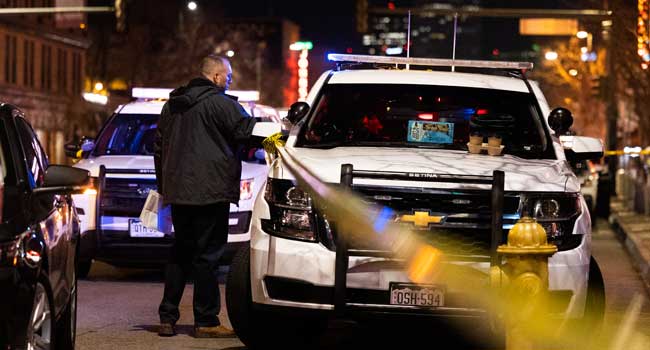
The move showed a willingness on the part of Colorado voters to tax marijuana for the public benefit even as they roundly defeated a broader tax measure that would have increased state income taxes to raise $1 billion for schools.
Colorado and Washington last year became the first U.S. states to legalize marijuana for recreational purposes. But Colorado, whose constitution requires a statewide vote to approve tax increases, left it to voters to decide how to tax the newly legal drug.
“We are grateful voters approved funding that will allow for a strong regulatory environment, just like liquor is regulated,” Hickenlooper said as returns showed 65 percent of voters in favor of the tax and 35 percent against with about a quarter of votes counted.
“We will do everything in our power to make sure kids don’t smoke pot and that we don’t have people driving who are high. This ballot measure gives Colorado the ability to regulate marijuana properly,” the Democratic governor said in a statement.
Under the marijuana tax proposal, a combined 15 percent excise and 10 percent sales tax would be imposed on recreational pot sales, with the first $40 million raised to fund school construction projects.
In Denver, a local ballot measure that would tack an additional 3.5 percent city sales tax on pot shops also appeared headed for passage, by a margin of 69 to 31 percent with roughly a third of votes counted.
Even as many proponents of legalizing recreational marijuana supported taxing the drug, some within the pot legalization community opposed the tax.
Rachel Gillette, president of Colorado’s chapter of the National Organization for the Reform of Marijuana Laws, said before the vote that her organization was not against taxing cannabis sales, but that the state was going too far.
“This is not keeping with the promise to tax marijuana like alcohol,” Gillette said. “It’s more like regulating the sale of plutonium than alcohol. It looks like a law-enforcement money grab.”
BROADER TAS MEASURE FAILS
Backers of a statewide proposal that would have increased the state income tax to raise nearly $1 billion annually for public schools conceded defeat on Tuesday, as returns showed it losing 66 percent to 34 percent with about 25 percent of votes counted.
“Tonight, we know that goal isn’t happening as soon as we’d like. But it will happen,” said state Senator Mike Johnston, a Democrat from Denver.
The school funding constitutional amendment would have scrapped the state’s current 4.63 percent flat income tax rate tied to federal adjusted gross income tax, and replaced it with a two-tiered income tax increase.
Under the proposal, taxpayers who made less than $75,000 would have paid a 5 percent rate and taxpayers who made over $75,000 would have faced a 5.9 percent rate.
Proponents of the measure say Colorado has for years underfunded public education, and sought voter approval to put school funding on a surer financial footing.
Opponents argued that Colorado requires local school districts to allocate tax revenues, so there is no guarantee on how the money will be spent at the local level, which could be used on teacher salaries or to backfill the state’s underfunded public employees retirement fund.
Backers of the tax raised more than $10 million for their campaign, bombarding television and radio airwaves with ads, touting the need for money to fund full-day kindergarten, and to restore music, art and physical education programs.
Among the donors to the pro-tax measure were Microsoft founder Bill Gates and his wife Melinda and New York City Mayor Michael Bloomberg, who, combined, donated $2 million to the campaign.




